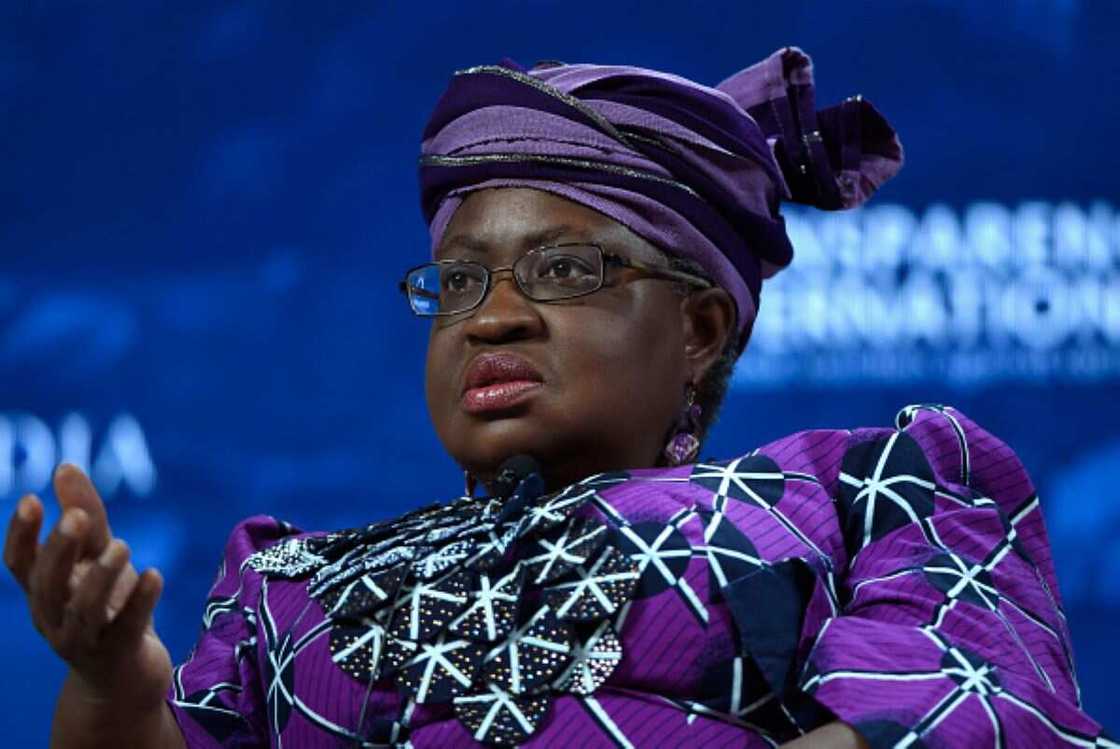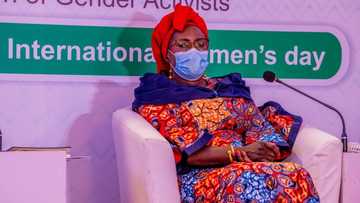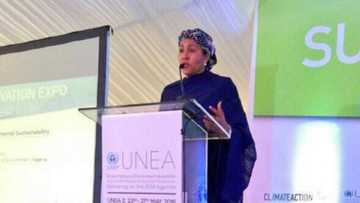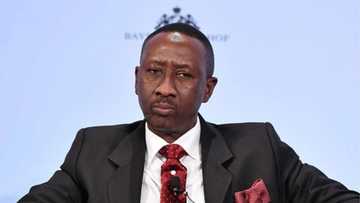IWD2021: Why women must choose to challenge by Tumininu Adeeko
Editor's note: Tumininu Adeeko, a research assistant with Yiaga Africa’s Knowledge Management and Learning Department, writes on the International Women's Day 2021, noting that Nigerian women can leverage on the day to begin to change the status quo in the country.
PAY ATTENTION: Join Legit.ng Telegram channel! Never miss important updates!
Women all over the world, and especially in Nigeria, celebrated the announcement of Dr. Ngozi Okonjo-Iweala as the new Director-General of the World Trade Organization in various ways such as the #BeLikeNgozi Challenge, the use of her pictures as WhatsApp status, and other displays of affection for her that showed how proud women were of her.
Women like Ngozi Okonjo-Iweala would not have to audition their capacity to the world. An all-inclusive, people-oriented, and development-conscious government will quickly recognize their worth, and not stereotype them.
On a day like this, we celebrate women’s contributions to society, as well as raise awareness about the fight for gender parity, and inspire support for organizations that help women globally.

Source: Getty Images
PAY ATTENTION: Install our latest app for Android, read the best news on Nigeria’s #1 news app
Even with the COVID-19 pandemic, women stand at the front lines to combat the pandemic and protect their families and society. This is a pointer to the fact that women bear the brunt of the challenges from COVID-19 and other prevalent issues globally. In a report commissioned by UN Women and the UNDP, by 2021, around 435 million women and girls will be living on less than $1.90 a day — including 47 million pushed into poverty as a result of COVID-19. Yet they choose to challenge the virus by giving their very best to have a safe society and sanity.
Globally, women are becoming progressively involved in reshaping the affairs of their nations, and excluding them from that stage will be undermining their character, capacity, and competence.
Here in Nigeria, our women took the most important position in the #EndSARS protests: they led the fight for change, they grew the movement, and sustained its power; they were also the ‘CBN' of the movement, raising and disbursing funds that kept the movement. They held the nation by one hand and their loved one by the other, putting themselves last in the priority of things. From the days of the Aba Women's Riots in 1929 and the Abeokuta Women's Union of the 1940s, women have been frontliners, driving change where needed.
Records have it that countries headed by women are not just thriving; they even handled the coronavirus pandemic better than male-led countries. That is because the make-up of a good leader (I don’t mean cosmetics here) and standards are never gender-specific. According to Golda Meir- Israeli Prime Minister:
“Whether women are better than men I cannot say—but I can say they are certainly no worse.”
The barriers for women have always been higher than those for men, and in recent years, it is obvious that those high barriers have been raised even higher for them to be where they would want to be. When the government or nation realizes that having and helping women to attain their dreams is paving the way for quicker development; then the nation is ready for liberation.
We are not ignorant of the fact that there are systemic barriers in place that stifle interest in leadership from women and their quest for equality, however, it is now time to achieve their fullest potentials without being questioned or queried because they are women but because they are human. If diversity of perspective is a key index to true progress, then efforts to attain development would be in vain if women are not involved.
Every feminized position should be challenged, as well as male-dominated positions. There should be no limit to what a woman can be. Electing or appointing women to deputy and assistant positions has become a cliché and the demand for equality has become a fruitless longing of women.
This is a callout for equality at all levels. The systemic gender inequality that has limited women from attaining height that has been known for ‘men only’ should be challenged. It is time for Nigeria as a nation to take the opportunity this day offers to reflect on how women can be well-invested women to become essential contributors to their world. A responsible and responsive government would do that.
Nigerian women will revolutionize their inclusion in politics and other leadership positions when they #ChoosetoChallenge. Why should women in parliament need to place a special request or make an extra effort for them to be included in the electoral act amendment? It is time to question those clauses that are responsible for their exclusion in the first place.

Read also
Meet Refilwe Ledwaba, a beautiful helicopter pilot teaching young girls to fly; her video warms hearts
While it is recommended that women should strive for gold-excellence in all undertaken, since the future is female, they are to also remain committed to breaking barriers, overcome obstacles to their advancement which included advice to prioritize the shattering of ceilings and not their fellow woman because this gender is solely responsible for its fellow. No other gender would strategies for them on how to circumvent barriers that confront them. In the sense of former Indian Prime Minister Indira Gandhi:
“To be liberated, a woman must feel free to be herself, not in rivalry to man but in the context of her own capacity and her personality.”
A challenged world is an alert world; every Nigerian woman should choose to challenge.
Jerrywright Ukwu is an Abuja-based senior political/defence correspondent at Legit.ng. He is a graduate of the Nigerian Institute of Journalism, Lagos and the International Institute of Journalism in Abuja. He is also a member of the Nigeria Union of Journalists. He spends his leisure-time reading history books. He can be reached via email at jerrywright39@yahoo.com.
Source: Legit.ng




